Woman Secretly Tampers with Condoms to Get Pregnant, Sister Exposes Truth, Husband Demands Divorce
The family can be messy, but what happens when the whole thing goes awry by doing the “right” thing? MY sister just believed she would eventually have a baby when her husband of two years said that he didn’t spend hundreds of dollars on marriage counseling for her, Toby, 30, to keep insist she wanted a child. At 27 Emily was supposed to be in a marriage. My sister would become this 33-year-old mother. During a night on the town, Toby had been told by Emily that she had been sabotaging condoms when he was using them, despite fighting against childbirth tooth and nail.
That shocked his older sister, who was disturbed and demanded that Emily cease. Emily also found out and told Toby because she thought it was wrong of her to let him be of the unknown when Emily brushed it off. The bombshell had massive ramifications: Toby allegedly brought up divorce, and Emily blasted her sister as “a marriage wrecker.” Now, the whole family has taken Emily’s side while the older sister is left alone and wondering if she did the right thing.
Marriage is supposed to be a team sport, not a solo DIY baby project

One woman was accused of ruining her sister’s marriage after telling her husband she was trying to get pregnant behind his back

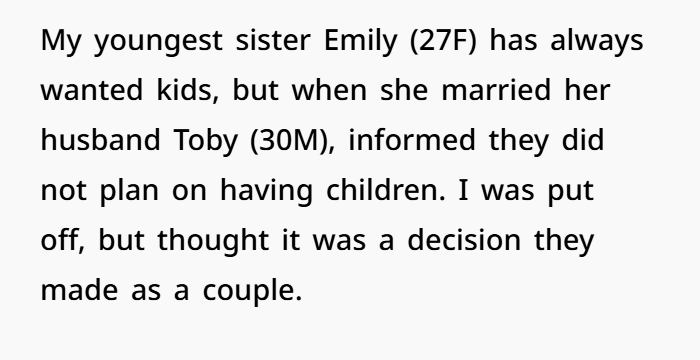
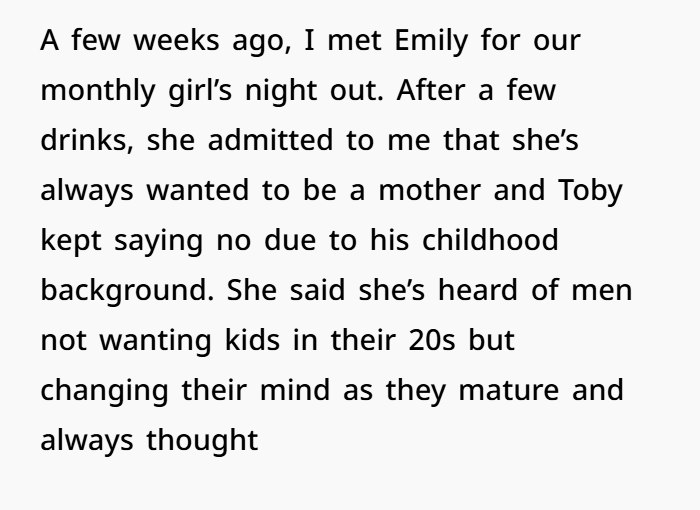
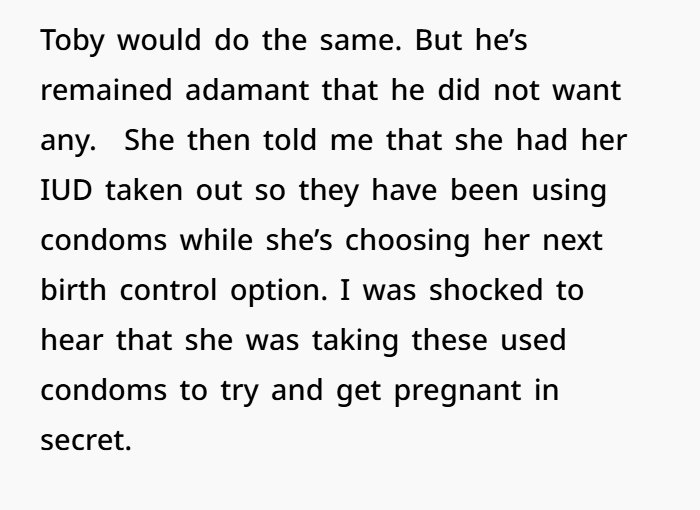

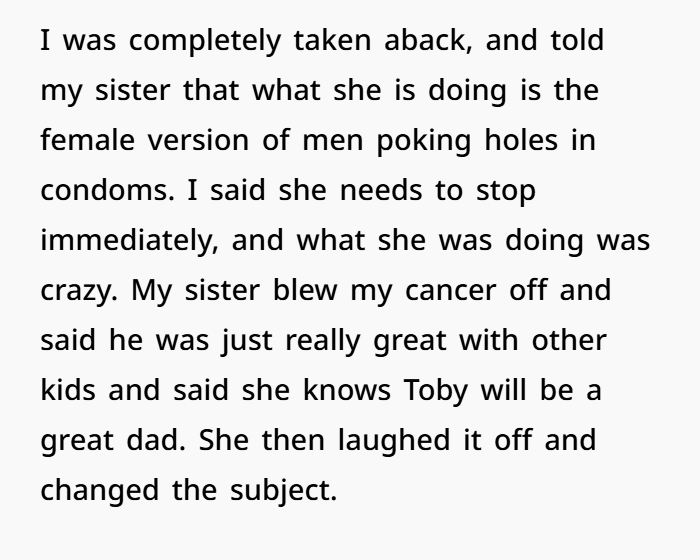
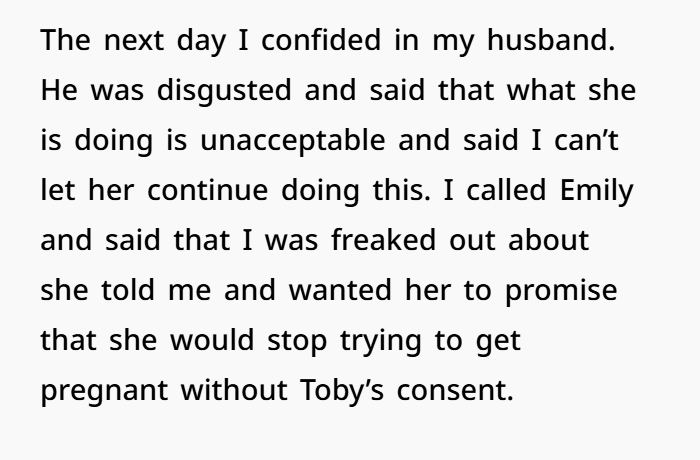
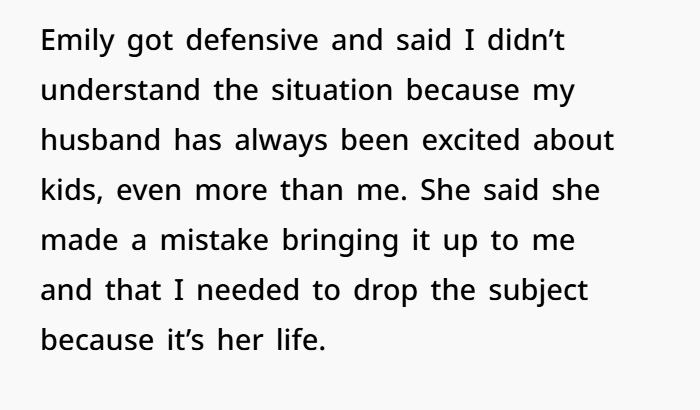
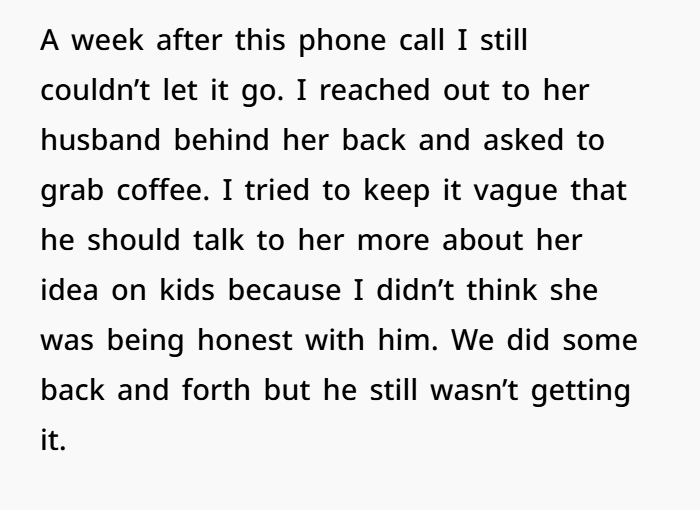
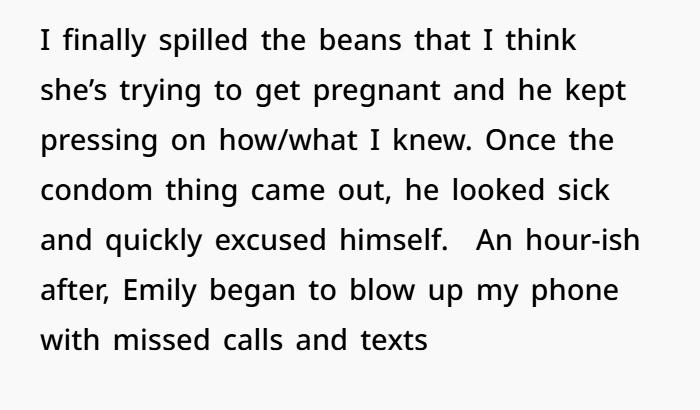

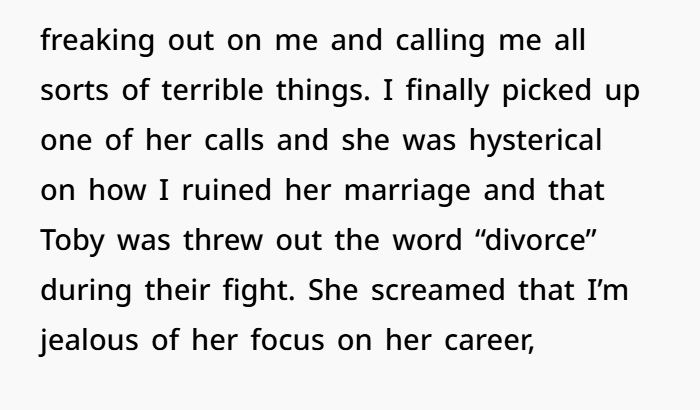
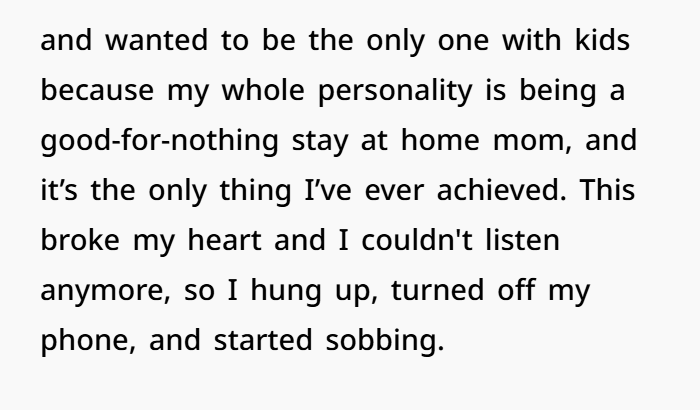
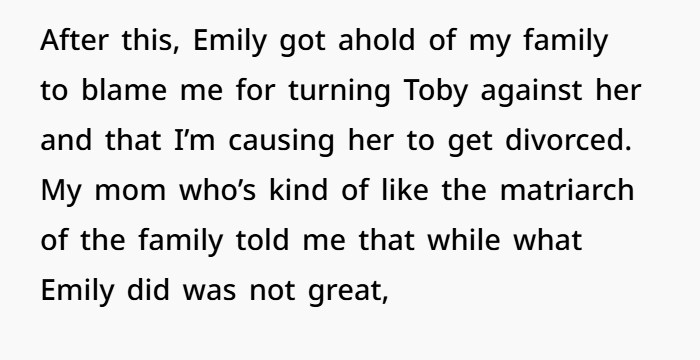
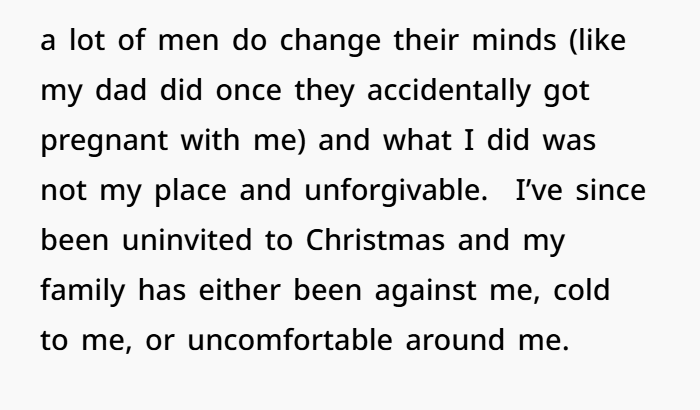
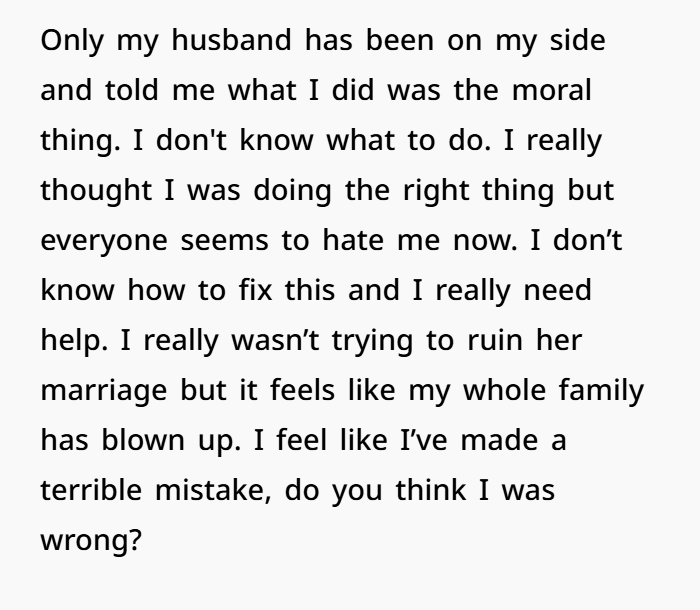

Navigating Morality, Family Loyalties, and Trust
1. The Moral Dilemma: When Loyalty Conflicts With Ethics
If Mrs. Ma requires artificial reproductive technology but her husband expresses a desire to maintain, it will lead to her own IVF accused of crossing the line of ethics and law. Even the International Pregnancy Advisory Secretariat has recognized reproductive coercion as a type of abuse, because it violates an individual partner’s right to determine for themselves if and when they want to become a parent. As noted by The American College of Obstetricians and Gynecologists (ACOG), reproductive coercion can erode trust and communication in relationships, with lasting effects.
The sister felt an obligation to tell Toby to prevent him from being tricked into becoming a parent. It would hurt Emily, sure, but a betrayal to stop a greater betrayal from ever happening in their marriage.
2. The Fallout: Consequences of Speaking Out
In other words, for the sister, there were repercussions the very next instant: Toby felt blindsided, Emily felt stabbed in the back, and the clan turned against her. Her approach, to challenge Toby directly, was always going to be confrontational, even if she had had moral grounds.
Instead of soliciting Toby, she could have explored other avenues, such as:
- Encouraging Emily to speak honestly with Toby in a mediated setting, such as couples therapy.
- Involving a neutral third party, like a family member or counselor, to help Emily see the potential damage of her actions.
However, given Emily’s dismissive attitude and refusal to acknowledge the gravity of her actions, the sister may have felt there was no other choice but to inform Toby.
3. The Family’s Reaction: Defensiveness and Denial

The family probably faced what their defensiveness and denial led to a backlash against the sister. Emily’s claims about her sister being envious or seeking to “control” her are just an attempt to deflect from being held accountable. In the same way, by downplaying what Emily had done, the mother wished to keep the peace in their families — even to the point of ignoring fundamental breaches of ethical conduct.
This is not unusual family dynamic where someone is the “truth-teller.” Psychological research on family conflict shows that these people experience the backlash that comes with their honesty upending the status quo of their family.
4. Moving Forward: Rebuilding Relationships and Protecting Boundaries
- Acknowledge Feelings but Stand Firm:
While it’s important to empathize with Emily’s feelings, the sister should stand by her decision to act in Toby’s best interest. A statement like, “I understand why you’re upset, but I couldn’t ignore what I felt was a serious breach of trust,” can help balance accountability with compassion. - Address the Family’s Reaction:
Open a dialogue with family members to explain her perspective. Emphasize that her actions were not meant to harm Emily but to ensure honesty in a situation that could have long-term consequences. - Protect Emotional Well-Being:
If the family continues to ostracize her, leaning on supportive relationships—like her husband—and seeking professional guidance can provide clarity and emotional strength.
Netizens side with the woman, saying she is not the jerk for telling her sister’s husband about his wife’s plan, as it’s not only disturbing but a form of abuse
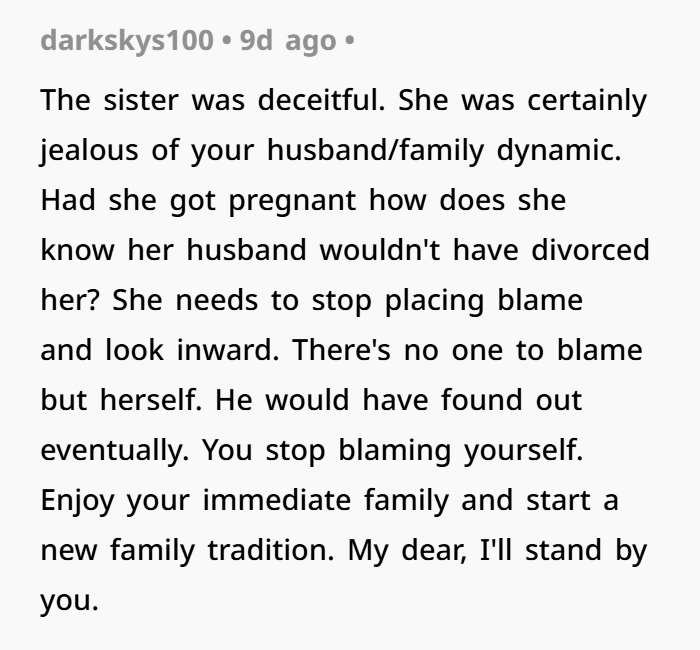
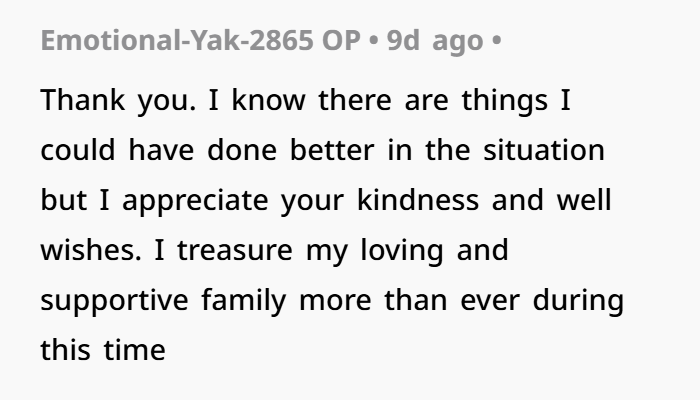
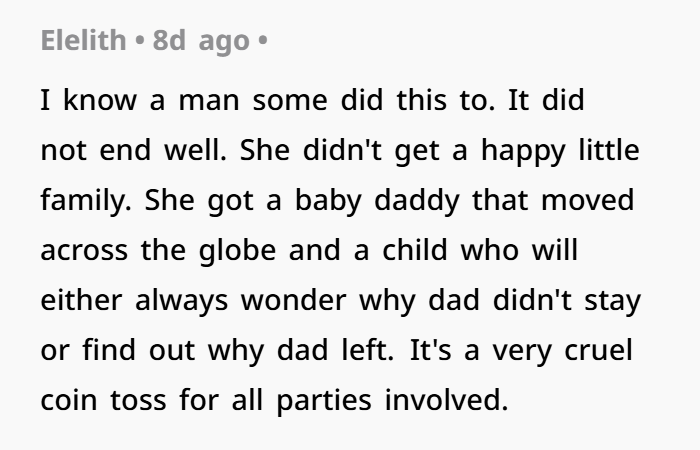
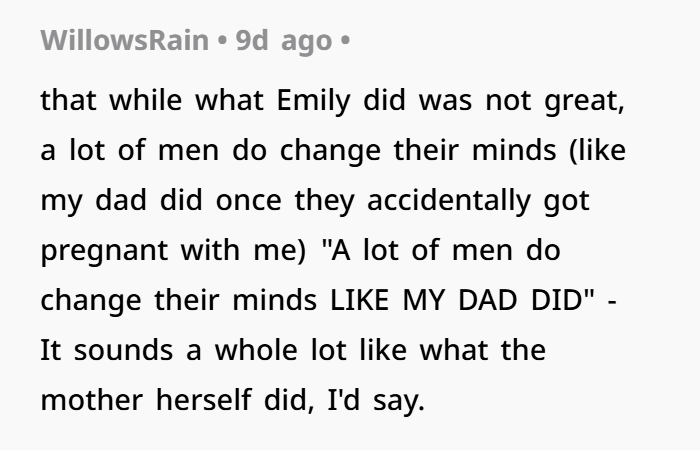

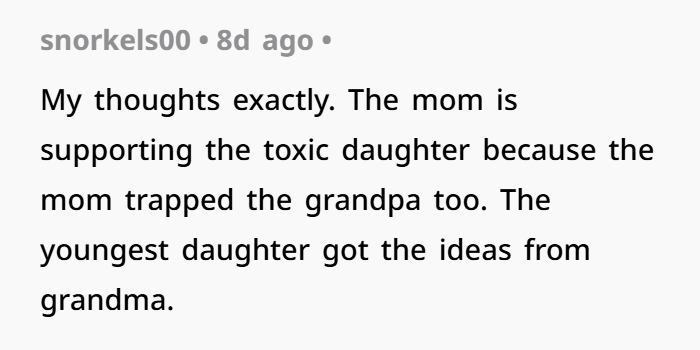
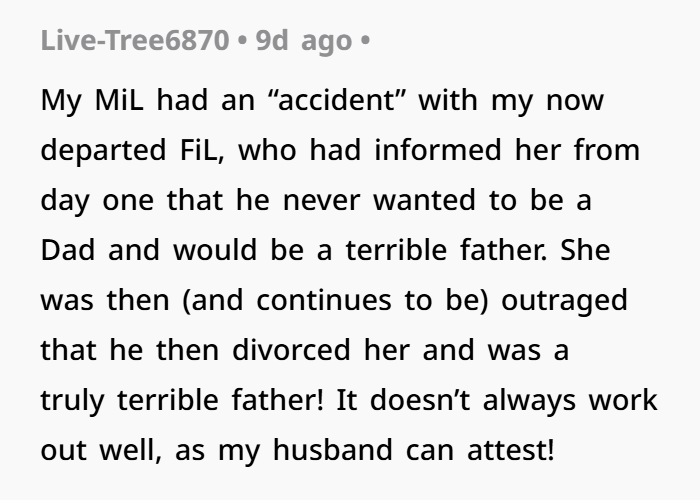
What she did was dark – the sister is not wrong for saying that Emily was wrong for doing this, and of course it is, because messing around with birth control means do you know how to break trust and take away the scope of the partner. But the fallout shows how thick the bank of family dysfunction goes when it comes to morality.
That this would happen is not surprising given the stakes are so high from the emotional side of things, but the sister actually did nothing wrong — she was looking out for Toby and wanted to do the right thing. In moving on, we need compassion, even in the absence of successful reconciliation, and at the same time firm boundaries.

